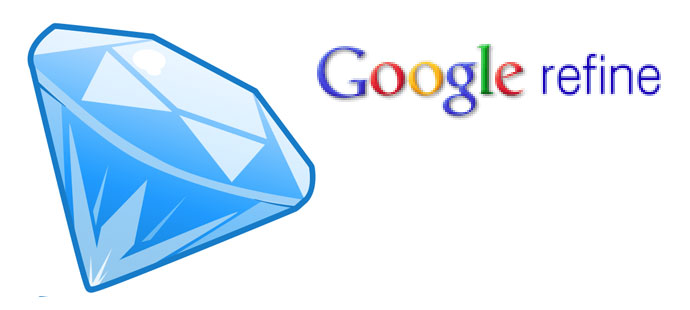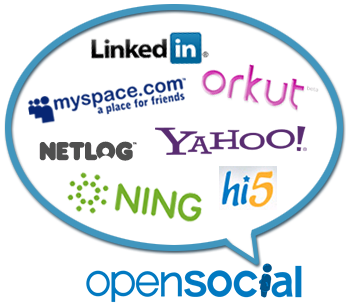![]() For many Google has become the patron saint of open source, and the number of open source projects Google supports or directly develops seems to increase every day. Some of Google’s own open source projects, like Android, have become as common as their proprietary competitors, yet many do not even realize they are using software with free and open source components.
For many Google has become the patron saint of open source, and the number of open source projects Google supports or directly develops seems to increase every day. Some of Google’s own open source projects, like Android, have become as common as their proprietary competitors, yet many do not even realize they are using software with free and open source components.
While major projects like Android, WebM video, and Chrome make headlines and attract numerous developers and end users alike, there are plenty of little projects from Google that you may not even know about, but that are worth looking at and maybe even taking for a spin. In no particular order, here are eight of the ones I found interesting.

1. Google Refine
There are an abundant variety of cleansing diets for your body. Think of Google Refine as a cleansing diet for your database. Originally called Freebase before Google’s acquisition of Metaweb, Google Refine helps you fix “messy data”, transform data from one format to another, and work with data in bulk rather than one cell at a time.
2. Google Web Toolkit
Feeling particularly geeky? The resident geeks at web server host 34SP.com say GWT is a packaged toolkit designed to make building browser-based applications easier. If you need a high-performance AJAX web application that works in browsers without a lot of tweaking, GWT might be right for you.
3. SpriteMe
 Website got you down? SpriteMe is designed to help you make your website faster and reduce server load using CSS image sprites rather than multiple separate image files. It is a simple browser bookmark that opens the application within your website, making it easy to create sprites, even if you already have a fully-functioning site in place.
Website got you down? SpriteMe is designed to help you make your website faster and reduce server load using CSS image sprites rather than multiple separate image files. It is a simple browser bookmark that opens the application within your website, making it easy to create sprites, even if you already have a fully-functioning site in place.
4. EarthSurfer
This is something you probably never imagined. Earth Surfer makes use of Nintendo’s Wii Balance Board and a Mac computer to allow you to “surf” around in Google Earth in a milk truck. I’m guessing the point is to demonstrate alternative ways of navigation within Google Earth, or maybe this is just a toy.
5. MobWrite
Google Wave may be dead, but collaboration is not. MobWrite is a small collaborative text tool that you can easily drop into your forms or web applications to instantly create collaborative environments. It is quick and easy to setup and gives you basic HTML collaborative editing, synchronization, and merging.
6. Quake II GWT Port
HTML5 will eventually change our static view of the Web. Quake II GWT Port is an example of just how much you can accomplish with basic HTML5 tools. Using the code from id Software’s Quake II, WebGL, Canvas, and HTML 5 audio, this in-browser game is an example of the types of web applications developers can create without having to resort to proprietary platforms like Adobe Flash. Right now, this version of Quake works with Safari, Chrome, and Firefox 4 (in development).
7. OpenSocial
 With a tag line that reads “Resources to help you spend less time coding, more time socializing”, you might get the impression that OpenSocial is only for your amusement; however, it is a powerful API set for creating social networking applications. Originally developed by Google, the foundation that supports the project is now supported by Hi5, MySpace, Yahoo, and many others. Unlike other proprietary social network application platforms, OpenSocial is free and open.
With a tag line that reads “Resources to help you spend less time coding, more time socializing”, you might get the impression that OpenSocial is only for your amusement; however, it is a powerful API set for creating social networking applications. Originally developed by Google, the foundation that supports the project is now supported by Hi5, MySpace, Yahoo, and many others. Unlike other proprietary social network application platforms, OpenSocial is free and open.
8. Gulliver
Planning a hike across Nepal with a group of buddies from around the world? Gulliver is an open source tool to help people do realtime planning of their trips. It currently powers Lonely Planet’s Trippy for Android, iGoogle, and mobile browsers. Rather than trusting the guy who thinks he knows how to get everywhere and will inevitably get you lost, this collaborative trip planner offers some much-needed democracy.
These eight Google open source projects only scratch the surface, and there are thousands more hosted on Google’s servers, both by Google and by open source developers from all over the world. To stay in the loop about Google’s open source projects, you can subscribe to their blog and visit the Google Code website.
Tavis J. Hampton is a librarian and writer with a decade of experience in information technology, web hosting, and Linux system administration. His freelance services include writing, editing, tech training, and information architecture.
